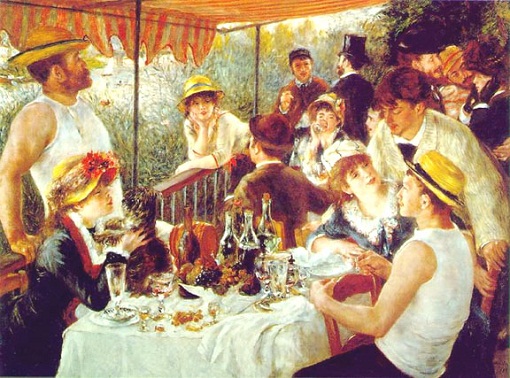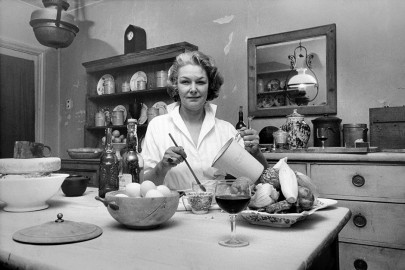Wine is the ultimate recession-proof leisure pursuit, argues Henry Jeffreys. Not least because it contains alchohol…
A wine merchant opened up near my flat in East London about three years ago just as the recession was taking off and people were losing their jobs. They didn’t offer much below £10 a bottle and their expensive stuff came not only from Bordeaux and Burgundy but from Portugal and even South Africa. I gave them a year before they gave up trying to sell £80 a bottle Portuguese wine in Hackney, put up a sign saying ‘much cheapness here!’ and filled the front of the shop with bargain bins. I was wrong, of course, business is booming so much so that they have opened another shop. I asked the owner about this and he said the worse the economy got the better they seemed to do. Rather than going out, his customers were eating take-away fish & chips with a grower’s champagne from the likes of Pierre Gimonnet. That’s a very good evening in for £50. Even in recession-hit Hackney there are plenty of people who can afford that.
Wine, even quite expensive wine, even with our ridiculously high level of taxation, is affordable entertainment; just compare it to restaurants or the theatre or skiing. It’s more reliable too. When visiting a restaurant the food might be vile and the service slow; at the theatre you might be bored rigid, actually be honest with yourself, you will be bored rigid; when skiing you could be killed; but even if the wine is indifferent you can still get drunk. Most wine writers neglect to mention that wine contains alcohol except perhaps to tick it off for having too much. One gets the impression that alcohol gets in the way of the enjoyment of the wine. This is, of course, nonsense. The reason you are drinking wine is because of the alcohol. But wine is so much more than just a drug. If you just wanted to be drunk you would join the Skol Super crowd down at Cambridge Heath station, wine also stimulates the heart and the head.
Certain wines work best on a sensual level. You don’t have to know very much about wine to appreciate the heady perfume of a good Chambolle-Musigny. It’s as close as one can get to listening to music with your nose and the enjoyment feels as instinctive as hearing a beautiful melody. But there is another level of enjoyment beyond the alcoholic and the sensual (and let’s not forget that the two are linked as the alcohol takes hold your senses are heightened), that is the intellectual. This is the area of wine appreciation that attracts the most disapproval. Knowledge of wine is seen as snobbish. I am sure that some people do learn about wine to impress or belittle but they are thankfully rare. Instead learning provides a frame of reference. Now when trying that sublime Chambolle, your brain will be comparing it to other vintages, other vineyards, other producers. You will know how rare it is to have a red Burgundy that really sings like this so you’ll have the pleasure of trying something sacred. Your mind will be linked into the history of the region, it will be a holiday and a history lesson from the comfort of your armchair. All of this mental comparing can be done explicitly if you’re with a fellow wine bore or just done mentally as you drink. It depends on the company. I don’t really approve of blind tastings as this brings in an element of competition that spoils the conversation. It’s like the hostess who insists on a game of charades when you really want to talk and listen.
A good wine should enhance the conversation, make you feel more eloquent than you really are and bring you closer to your interlocutor. This brings me to the ultimate leisure wines. Wines that the Italians call vino da meditazione – these are wines best shared with an old friend you haven’t seen for years or a formerly close but now estranged relative whom you hope to repair things with. From Italy itself you have Amarone and it’s sweet counterpart Recioto- made from dried grapes in Valpolicella, from France the fortified wines of the Rousillon, Maury and Banyuls, from Portugal, Port especially the tawny kind, and Madeira, from Spain an old oloroso sherry and, perhaps my favourite, from Sicily a dry Marsala from a producer such as De Bartoli or Florio. These are wines so rich and complex that you only drink them in small amounts. There are many others, almost every wine producing country produces something in this style, wines that engage the senses, aid thought and conversation, and bring people closer together. These wines are particularly apposite for reticent Englishmen as the wines themselves fill gaps in conversation, no need for idle chatter. An old marsala evoking the sights, smells, music and landscape of Sicily, is diversion enough, requiring only occasional murmur of pleasure from your companion.
All this can take place without any conscious thought. Whilst sipping wine with your old friend, your wife, your lover, talking, laughing, slowly giving in to intoxication, you wouldn’t, or if you are you shouldn’t, be making these distinctions between the intellectual and the sensual, the pleasure of wine and the pleasure of good company. For a moment or a whole evening if you’re lucky, there is harmony between your body, mind and soul. Nothing else comes close, certainly not eating out, theatre or skiing, and you don’t have to leave home or get a baby-sitter.











well postulated stuff Henry, don’t think you’ll find many dissenters round here!
incidentally have you seen that Gordon’s Gin advert that comes across as a bit chippy?
http://www.youtube.com/watch?v=Yr5CIkVl6T4&list=UUEdUv_oVq0RG3n63qmeQlBw&index=5&feature=plcp
Yes I saw that, chap in advert looks like he’s going to start a fight. I’d rather spend a wedding with a wine bore than a gin-fueled thug.
Henry, this is strictly a comment for your blog but…in your interview with Eduardo Porto Carreiro you queried the thought of a ‘corned beef and pastrami’ sandwich. This ‘corned beef’ is not Fray Bentos but merely the US equivalent of UK ‘salt beef’, which like pastrami is a great Jewish staple (or cliché). It comes from the ‘corns’ of salt used in the pickling process. The sandwich would still be far over the top, size- if not taste-wise, but that’s US deli sarnies for you. Forgive me if I have just informed my grandmother how to sard.
Yes I did know that. I took my wife who is American and her mother out for lunch at a local pub earlier in the year and we all ordered corned beef and pickle sandwiches. When they arrived I happily tucked into my Fray Bentos with Branston, thinking of how our Empire was built on tinned food, whilst the Americans took a little nibble and then pushed theirs away pining for salt beef, rye bread and dill pickles.
two words – Spam & Campbells!
So what’s the best wine to go with a Fray Bentos tinned pie?
In the last depression chocolate bars were the affordable treat that did well out of hard times. Last New Year’s Eve our (pricey) local fishmonger was busier than ever – I’m sure that was also a case of people saving money by staying in whilst splashing out on some fabulous food and drink.
Lots of wonderful observations, especially on the benefits of a good fortified wine. On a warm summer evening Pineau de Charentes on lots of ice can be very pleasant.